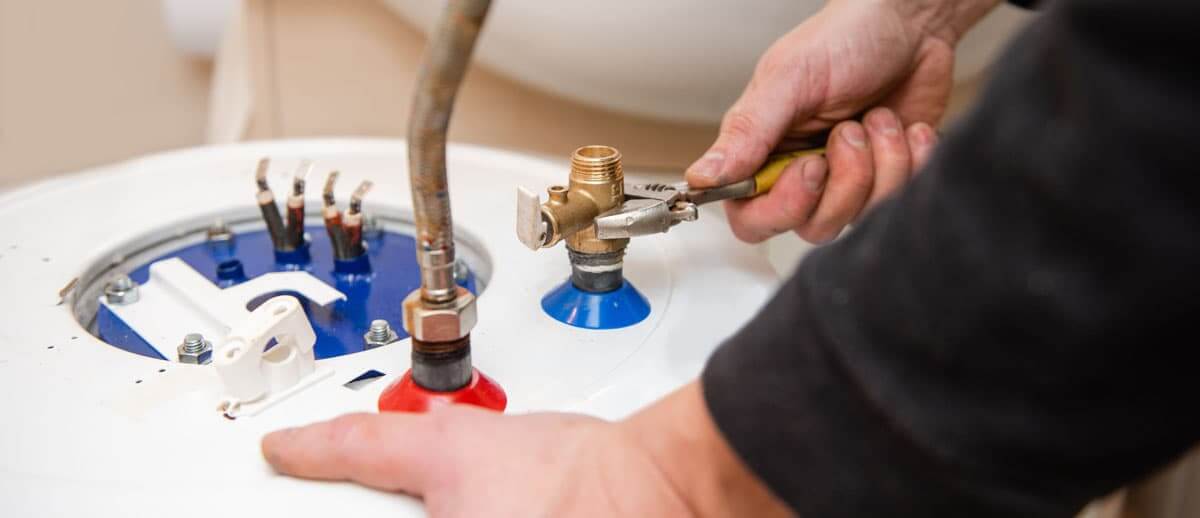How to Keep Your Hot Water System in Penrith Running Efficiently
With regular servicing, a few maintenance habits, and the help of a trusted local plumber, your hot water system can perform at its best for many years to come. Don’t wait until it fails—take proactive steps now to protect your investment and enjoy reliable hot water every day.

Hot water is something we all rely on daily—whether it’s for that morning shower, washing dishes after dinner, or doing a load of laundry. But while we often take it for granted, your hot water system works hard behind the scenes, and without regular care, its efficiency and lifespan can suffer.
For Penrith residents, where seasonal temperature changes and water quality can affect plumbing systems, ensuring your hot water unit is running efficiently is not only smart—it’s essential. Here's a practical guide on how to maintain your hot water system and avoid unexpected cold showers or costly hot water repair penrith.
1. Schedule Regular Professional Servicing
The first and most important step in maintaining an efficient hot water system is to have it serviced regularly by a licensed plumber. Most manufacturers recommend a professional inspection every 12 to 24 months, depending on the type of system you have (gas, electric, or solar).
During a service, a plumber will:
-
Check for leaks or corrosion
-
Flush the tank to remove sediment buildup
-
Inspect the anode rod
-
Test the pressure relief valve
-
Ensure the thermostat and heating elements are working correctly
In Penrith’s varying climate, annual servicing ensures your system operates efficiently year-round and helps extend its life.
2. Flush the Tank to Remove Sediment
Over time, minerals in Penrith’s water can accumulate at the bottom of your hot water tank, forming sediment that reduces heating efficiency and can even damage the tank lining.
Flushing the tank at least once a year helps remove this sediment and keeps the heating element working efficiently. If you notice your hot water has become noisy, discoloured, or slower to heat, this could be a sign of sediment buildup.
Although some homeowners attempt to flush their tank themselves, it’s often safer and more effective to let a professional handle it, especially if your unit is older.
3. Insulate Hot Water Pipes
One often-overlooked method to improve efficiency is insulating your hot water pipes, particularly those that are exposed to the elements. In colder Penrith winters, uninsulated pipes lose heat quickly, forcing your system to work harder to maintain water temperature.
Pipe insulation is an affordable and easy fix that can reduce heat loss and lower energy bills. It also shortens the time it takes for hot water to reach your taps, which means less water wasted while waiting for it to warm up.
4. Adjust the Thermostat to an Optimal Temperature
Many hot water systems are set higher than necessary. While it might seem like hotter water is better, setting your thermostat too high wastes energy and increases the risk of scalding. For most households, 60°C is the optimal temperature for storage hot water systems to prevent bacterial growth (like Legionella), while instant systems can be set lower.
Keeping your system at the right temperature ensures it runs efficiently without overworking or wasting energy.
5. Check for Leaks Regularly
Even a small leak can cause significant problems over time. A leaking valve, pipe, or tank means your system is working overtime to maintain pressure and temperature, wasting water and energy in the process.
Get into the habit of checking your system every few weeks for signs of moisture, rust, or corrosion around connections and the base of the tank. If you spot anything unusual, call a licensed plumber in Penrith immediately before it worsens.
6. Replace the Anode Rod When Needed
The anode rod is a key component that protects your hot water tank from corrosion. It attracts minerals and corrosive elements, effectively sacrificing itself to extend the life of the tank. However, over time, the rod wears down and needs replacing—typically every 3 to 5 years.
A plumber can check the condition of the anode rod during a service. Replacing it when needed can add several years to your system’s lifespan and improve overall efficiency.
7. Be Mindful of Usage Patterns
Efficient hot water usage isn’t just about the system—it’s also about how your household uses it. Simple habits like:
-
Using cold water for laundry when possible
-
Installing low-flow showerheads and faucets
-
Spacing out hot water usage (e.g., showers, laundry, dishwashing)
…can reduce the strain on your hot water unit and lower your energy bills.
Final Thoughts
Your hot water system is one of the most important and heavily used appliances in your Penrith home. Keeping it running efficiently isn’t just about avoiding the inconvenience of a breakdown—it’s also about saving energy, reducing costs, and ensuring the safety and comfort of your family.
With regular servicing, a few maintenance habits, and the help of a trusted local plumber, your hot water system can perform at its best for many years to come. Don’t wait until it fails—take proactive steps now to protect your investment and enjoy reliable hot water every day.